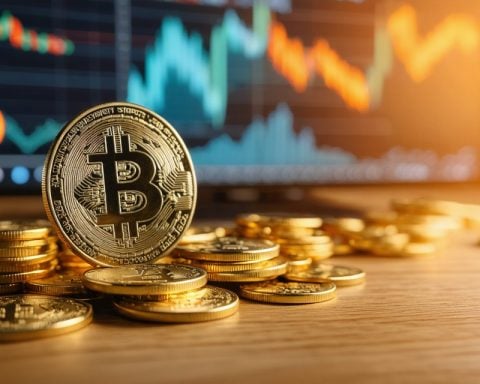In the ever-evolving world of gaming, Team SoloMid (TSM), one of the most renowned esports organizations, isn’t just making waves in tournaments; it’s also causing ripples in the stock market. With the rise in TSM’s stock price, gamers and investors alike are taking note of how this financial trend might influence the gaming landscape.
Technological Innovation Drives Growth
TSM has embarked on a path of innovation by investing heavily in cutting-edge gaming technologies. With advancements in AI-driven coaching tools and immersive viewer experiences through augmented reality (AR), TSM is redefining the way games are played and watched. These technological enhancements are not only elevating player performance but also capturing a wider audience, leading to increased revenue streams and, consequently, a boost in their stock price.
Implications for Gamers
For the gaming community, TSM’s financial ascendancy translates to more refined content, expansive tournament opportunities, and enriched fan interactions. Increased capital allows TSM to invest in world-class talent acquisition and innovative product development, directly benefiting the end-user.
A Look Ahead
As TSM’s stock continues to climb, the future holds exciting possibilities. Continued investment in next-gen gaming technology promises more revolutionary experiences for gamers. This upward trend in stock prices emphasizes the maturing relationship between esports and financial markets—a partnership that foretells a promising future for gaming enthusiasts and investors alike.
Is the Rise of Esports Organizations Like TSM Changing Global Gaming Dynamics Forever?
As Team SoloMid (TSM) pushes the boundaries of esports with its innovative spirit, this prompts larger questions about the intersection of technology, gaming, and finance on a global scale. While TSM is garnering attention for its stock market performance and technological advancements, other notable influences in the gaming ecosystem are starting to emerge.
Inter-Regional Growth and Economic Impact
TSM’s success shines a light on the global economic impact of esports. Regions traditionally less involved in the gaming industry, like certain areas in Africa and South America, are seeing increasing opportunities. As esports organizations grow, they drive investments into local economies, potentially reducing youth unemployment. The downside, however, is the digital divide that persists in less developed regions, limiting access to innovation.
Cultural Shifts and Educational Opportunities
The esports paradigm is shifting cultural perceptions of gaming from merely leisure to a viable career path, prompting educational institutions to introduce gaming-related courses and degrees. However, this trend invites controversy, as opponents argue whether schools should prioritize such programs over more traditional curricula.
Privacy and Ethics
Moreover, the integration of AI and AR in gaming raises pressing privacy and ethical issues. How much data should these technologies collect from users? Are there biases in AI-driven coaching tools? Addressing these questions is crucial as the lines between gaming entertainment and privacy continue to blur.
In conclusion, as TSM leads the charge in evolving the esports landscape, it’s a call for gamers, investors, and governments to address both opportunities and challenges. Learn more about TSM here.



















